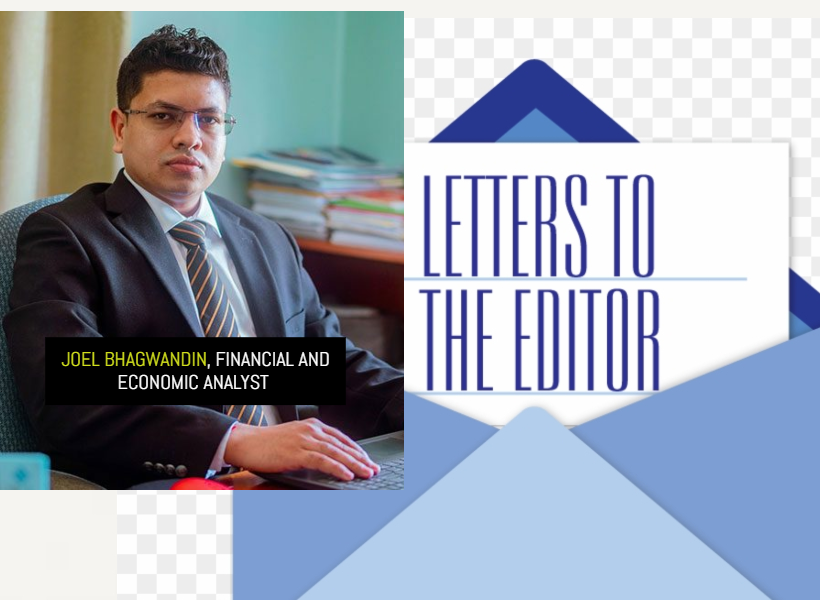Dear Editor,
At the meeting between President Dr. Mohamed Irfaan Ali and President Nicholas Maduro, the Attorney General & Minister of Legal Affairs, Mohabir Anil Nandlall, S.C., revealed that, that President Maduro had in his possession volumes of documents. Many of those documents were reportedly compilations of public commentaries in the local media, in relation to the ExxonMobil (XOM) and the Production Sharing Agreement (2016). These are largely adverse commentaries in regard to ExxonMobil’s operations here in Guyana.
With that in mind, it is worth noting that the Nicolas Maduro regime, like his predecessor, is a strong anti-American government, especially the U.S multinational corporation, ExxonMobil. There is a background that underpins this view that Maduro is unusually hostile towards ExxonMobil.
To this end, over the past two decades, Venezuela has changed to become a problematic country from an investment perspective. Venezuela’s political and economic history supports the assertion that Venezuela has and continues to be a risky place to make investments, especially for political reasons.
During the mid-1990s, Venezuela’s national oil company, PDVSA, implemented a policy known as the Apertura Petrolera (oil opening), which sought to mobilize the capital, technology, and managerial capabilities of international oil companies in order to maximize the production of crude oil while simultaneously reducing drastically the fiscal burden on hydrocarbons exploration and production activities. Of note, the policy achieved its objectives to a large extent.
Production by Venezuela was a key factor behind the oil price collapse of 1998, and the paltry fiscal income generated by some of the Apertura era projects made them the most unfavorable–for the State–in the history of Venezuela’s petroleum industry. The standard bearers of the Apertura were four large, costly, and complex projects dedicated to the production upgrading (i.e., partial refining) and marketing (as synthetic crude) of extra-heavy oils. Three of these projects were at the centre of arbitration proceedings that ConocoPhillips (COP) and ExxonMobil (XOM) initiated against Venezuela at the International Center for Settlement of Investment Disputes (ICSID) in late 2007.
These arbitrations featured some of the largest claims ever to have been made against a State by international investors: US$30 billion in the case of COP and more than US$15 billion in the case of XOM. COP and XOM alleged that, in changing the fiscal conditions for the upgrading projects, and then re-structuring them along the lines sketched above, the Venezuelan Government rode roughshod over their vested rights, treating contractual undertakings “as the proverbial scrap of paper” that they can disregard at their convenience…breaking all the commitments…made to induce investment.
In other words, XOM and COP contended that Venezuela, inter alia, legislative amendments enacted changes to the fiscal terms of the investment agreement that were more favorable to the country which jeopardized the stability of and security of their long-term investments. According to XOM and COP, their legal proceedings were prompted by a commitment to uphold the principle of sanctity of contract.
The oil companies would have bargained with PDVSA to obtain protection for their investments through specific compensation mechanisms, which made explicit reference to a limitation of liability on the part of PDVSA, and provided that foreign investors would be deemed not to have suffered any adverse economic consequences from government measures when the price of crude oil exceeded a certain threshold level.
In 2007, an arbitration panel awarded ExxonMobil US$908 million in compensation for Venezuela’s nationalization of its assets, less than 10% of what the company sought in the long legal battle against Venezuela. In 2017, a World Bank tribunal eventually ordered Venezuela to pay ExxonMobil $1.4 billion in damages.
One news report carried in Kaieteur News on December 22, 2019, cited a report by Globovision which stated that Venezuela’s politicians are of the opinion that ExxonMobil is behind all the heavily imposed sanctions on the country by the United States. This view is not an improbable hypothesis considering the geopolitics of oil, and it is a view that is also held by other experts.
It is interesting to note that Venezuela’s GDP as of 2012 stood at US$372 billion, which experienced a rapid decline in the years thereafter, to a low of US$92 billion in 2022, a regression to where the country was since 1998―that is, more than two decades ago.
With the foregoing in mind, readers would recall that in previous writings, this author had argued that the Venezuelan President, Nicolas Maduro’s recent statements and threats revealed the obvious―that is, he wants Guyana to become a failed State like Venezuela by becoming anti-American and treat ExxonMobil in a similar manner that Venezuela did in the past. Therefore, Guyanese should not be distracted or concerned for one bit, about Maduro’s obsession over Guyana’s domestic affairs. He (Maduro) has his own domestic affairs to take care of, such as an ailing economy to turnaround, and an election to face in 2024.
Yours respectfully,
Joel Bhagwandin













